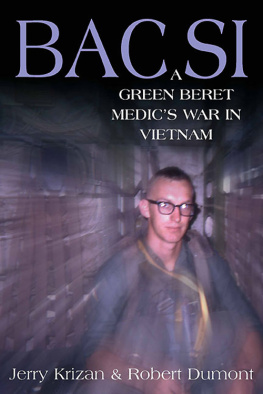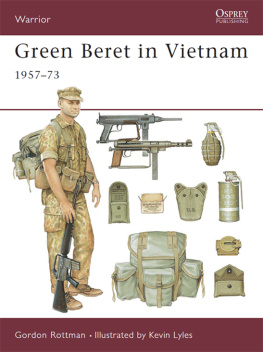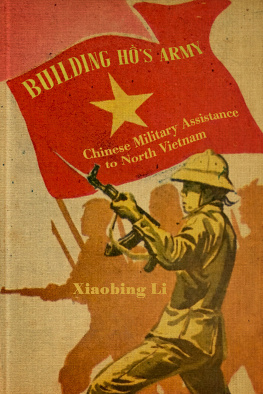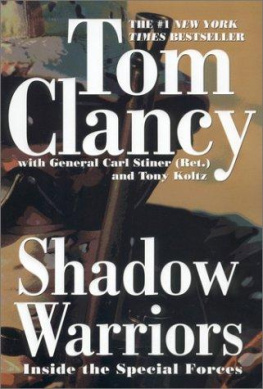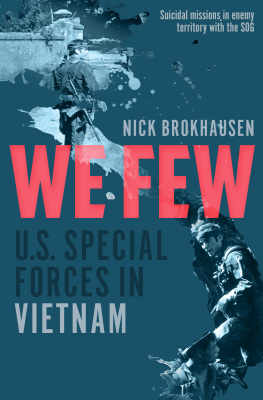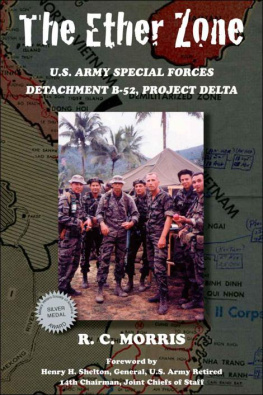
US Special Forces and Counterinsurgency in Vietnam
This volume examines the efforts of US Army Special Forces to mobilize and train indigenous minorities in Vietnam.
Christopher K. Ives shows how, before the Second Indochina War, the Republic of Vietnam had begun to falter under the burden of an increasingly successful insurgency. The dominant American military culture could not conform to President Kennedys guidance to wage small wars, while President Diems provincial and military structures provided neither assistance nor security. The Green Berets developed and executed effective counterinsurgency tactics and operations with strategic implications while living, training, and finally fighting with the Montagnard peoples in the Central Highlands. Special Forces soldiers developed and executed what needed to be done to mobilize indigenous minorities, having assessed what needed to be known.
Combining Clausewitz, business theory and strategic insight, this book provides an important starting point for thinking about how the US military should be approaching the problems of todays small wars.
This book will be of much interest to students of the Vietnam War, Special Forces operations, military innovation and strategic theory in general.
Christopher Ives holds a PhD in history from the Ohio State University, and is a veteran of the US Special Forces, with over 20 years service. He now works as a security analyst.
Series: Strategy and History
Series Editors: Colin Gray and Williamson Murray
ISSN: 14736403
This new series will focus on the theory and practice of strategy. Following Clausewitz, strategy has been understood to mean the use made of force, and the threat of the use of force, for the ends of policy. This series is as interested in ideas as in historical cases of grand strategy and military strategy in action. All historical periods, near and past, and even future, are of interest. In addition to original monographs, the series will from time to time publish edited reprints of neglected classics as well as collections of essays.
- Military Logistics and Strategic Performance, Thomas M. Kane
- Strategy for Chaos: Revolutions in Military Affairs and the Evidence of History, Colin Gray
- The Myth of Inevitable US Defeat in Vietnam, C. Dale Walton
- Astropolitik: Classical Geopolitics in the Space Age, Everett C. Dolman
- Anglo-American Strategic Relations and the Far East, 19331939: Imperial Crossroads, Greg Kennedy
- Pure Strategy: Power and Principle in the Space and Information Age, Everett C. Dolman
- The Red Army, 1918-1941: From Vanguard of World Revolution to US Ally, Earl F. Ziemke
- Britain and Ballistic Missile Defence, 19422002, Jeremy Stocker
- The Nature of War in the Information Age: Clausewitzian Future, David J. Lonsdale
- Strategy as Social Science: Thomas Schelling and the Nuclear Age, Robert Ayson
- Warfighting and Disruptive Technologies: Disguising Innovation, Terry Pierce
- The Fog of Peace and War Planning: Military and Strategic Planning under Uncertainty, edited by Talbot C. Imlay and Monica Duffy Toft
- US Army Intervention Policy and Army Innovation: From Vietnam to Iraq, Richard Lock-Pullan
- German Disarmament After World War I: The Diplomacy of International Arms Inspection 19201931, Richard J. Shuster
- Strategy and History: Essays on Theory and Practice, Colin S. Gray
- The German 1918 Offensives: A Case Study in the Operational Level of War, David T. Zabecki
- Special Operations and Strategy: From World War II to the War on Terrorism, James D. Kiras
- Science, Strategy and War: The Strategic Theory of John Boyd, Frans P.B. Osinga
- US Defense Strategy from Vietnam to Operation Iraqi Freedom: Military Innovation and the New American Way of War, 19732003, Robert R. Tomes
- US Special Forces and Counterinsurgency in Vietnam: Military Innovation and Institutional Failure, 19611963, Christopher K. Ives
First published 2007
by Routledge
2 Park Square, Milton Park, Abingdon, Oxon, OX14 4RN
Simultaneously published in the USA and Canada
by Routledge
270 Madison Avenue, New York, NY 10016
Routledge is an imprint of the Taylor & Francis Group, an informa business
This edition published in the Taylor & Francis e-Library, 2006.
To purchase your own copy of this or any of Taylor & Francis or Routledges collection of thousands of eBooks please go to www.eBookstore.tandf.co.uk.
2007 Christopher K. Ives
All Rights Reserved. No part of this book may be reprinted or reproduced or utilised in any form or by any electronic, mechanical, or other means, now known or hereafter invented, including photocopying and recording, or in any information storage or retrieval system, without permission in writing from the publishers.
British Library Cataloguing in Publication Data
A catalogue record for this book is available from the British Library
Library of Congress Cataloging-in-Publication Data
Ives, Christopher K.
US Special Forces and counterinsurgency in Vietnam : military innovation and institutional failure, 196163 / Christopher K. Ives.
p.cm. (Strategy and history)
Includes bibliographical references and index.
1. Vietnam War, 19611975Underground movements. 2. CounterinsurgencyVietnam. 3. United States. Army. Special ForcesHistory. 4. Vietnam War, 19611975Regimental historiesUnited States. 5. StrategyHistory20th century. I. Title.
DS558.92.I94 2007
959.70438dc22
2006023844
ISBN 0-203-96494-2 Master e-book ISBN
ISBN 10: 0-415-40075-9 (hbk)
ISBN 10: 0-203-96494-2 (ebk)
ISBN 13: 978-0-415-40075-6 (hbk)
ISBN 13: 978-0-203-96494-1 (ebk)
Series editors preface
That famous New York philosopher Yogi Berra once remarked after a baseball game that: it was dj vu all over again. He was all too right. At present we sit in front of our televisions and watch the violence in Iraq spiral out of control, as American military forces get drawn deeper and deeper into the quagmire of the Middle East. Those of us who served in the American military in the 1960s and were young have seen history repeat itself (a reference to the account of the battles in the Ia Drang valley in November 1965; see Lieutenant General Harold Moore and Joe Galloway, We Were Soldiers Once...and Young). We have watched an insurgency emerge from the ashes of a collapsed vicious, wretched regime and its inept military. At least in our youth we had a Secretary of Defense who could recognize an insurgency when he saw one, whatever his egregious failings in addressing the problems raised by the North Vietnamese and the Viet Cong.
Christopher Ives has addressed the initial, skillful efforts of the American Special Forces to address the security of the highlands of Vietnam and their Montagnard tribesmen. But what started off as a skillful and for the most part successful adaptation to the conditions of insurgency in the highlands then turned into a strategic hamlet program managed by officers and a bureaucracySouth Vietnamese as well as Americanwhich proved unimaginative, incapable of adaptation to the real conditions of war, and irrelevant to the politics of the insurgency. Given the experiences of the American military in the two decades before Vietnam and the huge pressures of technological change in those decades, there was some small excuse for those failures.
Neverthless, as Clausewitz suggests, one needs to understand the kind of war in which one is going to embark. The American military writ large failed to understand the war in the south as it found itself slowly sinking into the Vietnam War. Driven by a Secretary of Defense who believed that technology and computing power had rendered history irrelevent to the problems at hand, the American military ignored the study of culture, history and languages in its desire to find the easy, simple silver bullet to solve the knotty and all too messy problems raised by the conflict against the North Vietnamese and the Viet Cong.




